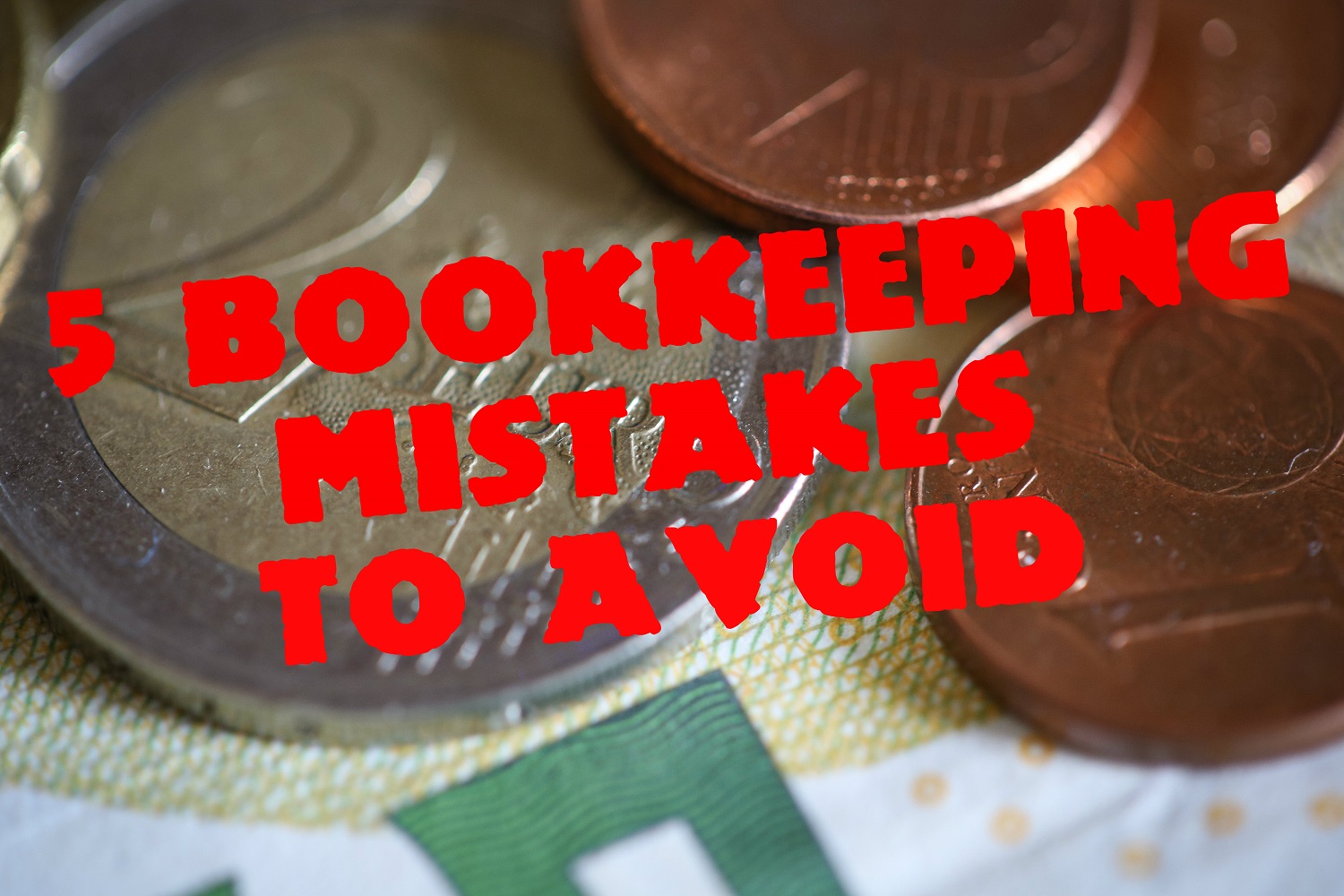There’s nothing worse for a business than an accounting scandal. Japanese electronic giant Toshiba recently hired outside directors to their board due to a massive accounting fraud cover-up. After reviewing bookkeeping records, it was discovered that the previous executives posted higher profit earnings of about ¥156 billion (€22.1 billion) for up to six years leading up to 2014.
While you may still be in the early stages of running your small company, it doesn’t mean you can’t make bookkeeping errors that can lead to devastating affects to the operations and reputation of your business. Identifying and recognising common accounting problems you may commit allows you to rectify the issues quickly.
Here are 5 bookkeeping mistakes you should avoid at all costs:
- Mixing business and personal finances has to be the most common mistake that new startups make during the first few months of operations. Instead of having a personal account and a business account, you may end of placing all profits into your personal banking account. The waters can become even more muddy when you begin using business credit cards to pay for personal items that are included on your balance sheets, leading to extra problems when filing annual returns.
- Not deciding on an accounting method can quickly cause issues as you may flip and flop between the cash basis accounting method and the traditional accrual basis accounting method. You will have to decide on the best method that suits your business, whether you want to account for income made when the cash is received (cash basis) or when you send out the invoice (accrual basis).
- Never push aside the business accounting tasks if you don’t know what you are doing. If you can afford to hire an accountant at this early stage, then do so, so you are reassured that your bookkeeping will be handled correctly while you focus on business operations. If you can’t afford an account at this phase of operations, look toward cloud-based accounting software. You can easily input data while having a secure system that is always accessible.
- Incorrectly classifying expenses and assets my lead you to double report earnings or expenses from one month to the next, or place the items on the wrong fiscal year. Reviewing what the expense budget is and what actual expenses occurred can allow you to spot mistakes. Always separate assets and liabilities while reconciling accounts so your balance sheet shows accurate information.
- Forgetting to record inventory or expenses as they happen can be a simple mistake to make. You are so busy running daily operations that the accounting aspect falls into neglect. By omitting such data, your records may indicate that you have more or less inventory in the business, or lesser expenses that you paid to vendors, causing your business to appear as if it is doing financially better when this is not the case.
There are many more bookkeeping mistakes to avoid besides the list that we mentioned above. Sitting down with an accountant allows you to hash out the details so you have the right accounting procedures and accounting software up and running the first day of your business operations.




